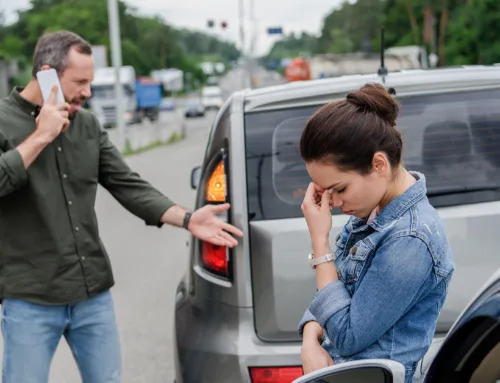If you’ve ever driven on a Georgia highway, you’ve likely shared the road with various types of trucks. Think of semi-trucks, or 18 wheelers. While some of these trucks are attached to trailers, others are not. A large semi-truck without a trailer attached to it is referred to as a “bobtail truck.” This is different from “deadheading,” where a truck has an empty trailer attached. Many people are unaware that a bobtail truck can be equally as dangerous as one with a trailer attached.
How are Bobtail trucks dangerous?
When a truck doesn’t have an attached trailer, most of its weight is diverted to its front wheels. The issue is that a bobtail truck has a lot of weight on the front tires but little on the back. This uneven weight distribution makes the truck more challenging to drive and requires heightened attention from the driver.
The problem with bobtailing is that a bobtail truck cannot brake as forcefully since the traction on the back wheels will be reduced. Therefore, a careless driver may find that a bobtailing truck requires extra stopping distance, increasing the risk of accidents during sudden braking.
Georgia Laws and Regulations
In Georgia, bobtail trucks are subject to the same regulations as other commercial vehicles, including weight limits, driver qualifications, and safety standards. However, it’s important to note that insurance requirements for bobtail trucks may differ, especially when they are not under dispatch, meaning the truck is not currently on a job or transporting goods.
When a truck is under dispatch, there could be other entities and insurance companies adding or sharing in the liability or insurance coverage on the truck.
Uses of Bobtail Trucks
Bobtail trucks serve various purposes:
- Transporting Goods: They are often used to move cargo from manufacturing facilities to warehouses.
- Personal Use: When not under dispatch, some drivers use bobtail trucks for personal errands, provided they have the appropriate insurance coverage.
- In-Transit: Commonly seen moving between jobs, especially when a trailer is not required for the next dispatch.
Bobtail Truck Accident Liability in Georgia
Accidents involving bobtail trucks can be legally complex and dangerous, often implicating multiple parties. Here’s a brief rundown of who could be held liable under Georgia law:
1. Truck Driver: If the driver was negligent, such as driving under the influence, speeding, or violating traffic laws—they could be held responsible for their negligence and resulting damages.
2. Trucking Company: The trucking company may be liable if they failed to maintain the vehicle, inadequately trained or supervised the driver, or had poor hiring practices.
3. Truck Manufacturers: If the accident was due to a defective part, the manufacturer could be held accountable.
4. Insurance Carriers: Georgia is a direct action state. This means that in accidents involving common motor carriers like 18 wheelers and semi-truck, the insurance companies insuring those trucks can be held liable, and added as parties to the lawsuit.
In Georgia, truck drivers are subject to stricter standards than regular motorists, and federal regulations may also apply. Victims have the right to compensation for medical bills, lost wages, and pain and suffering.
Contact a Georgia Bobtail Truck Accident Attorney
If you or a loved one has been involved in a bobtail truck accident in Georgia, it’s important to consult with an experienced bobtail truck accident attorney who understands the complexities of such cases.
Don’t hesitate to contact Flanagan Law for specialized legal advice tailored to your specific situation. Our team is well-versed in Georgia’s trucking laws and can guide you through the legal process, from initial consultation to settlement or trial. Contact us today to discuss your case and explore your options.


